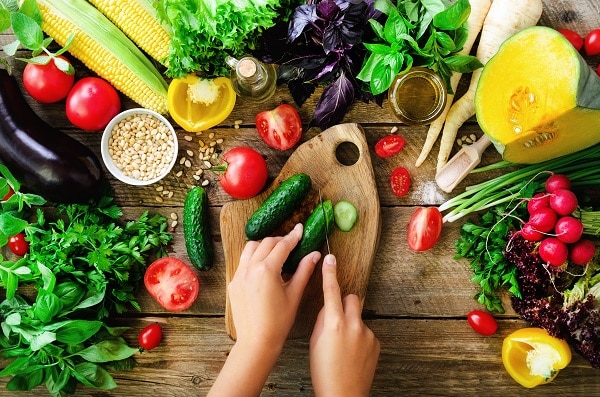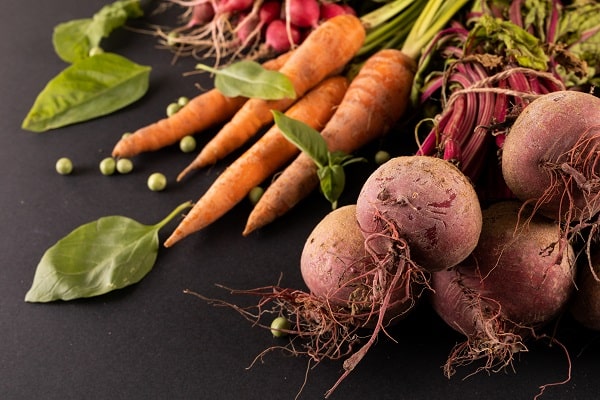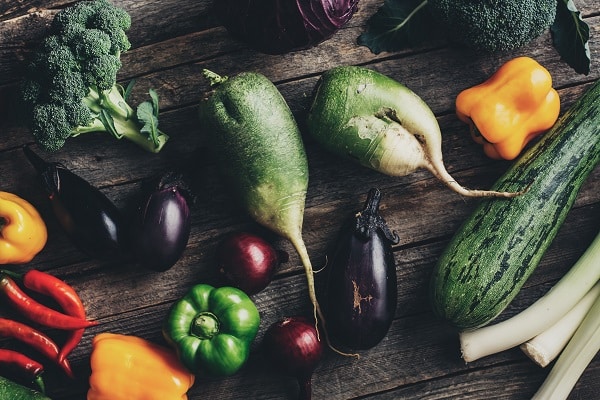Vegetables are often seen as a necessary evil by many people. They are something that you are told you should eat but often don’t enjoy. However, there are many good reasons to ensure you’re getting your daily dose of veggies. Most people know that eating vegetables is important, but often they are unsure why. This article will explore some of the key reasons why it is essential to include vegetables in your diet. Keep reading for more information!
Promotes A Healthy Heart

A healthy diet is essential for a healthy heart. Including vegetables in your diet is part of a heart-healthy eating plan. Vegetables are an excellent source of nutrients like fiber, vitamins, minerals, and antioxidants. They’re also low in calories and can help you feel full longer. Eating a variety of vegetables every day can help you reach your goals for a healthy heart. There are many important reasons to take care of your heart health.
A healthy heart pumps blood more efficiently throughout your body, providing oxygen and nutrients to all of your cells. This includes the cells in your brain, which need a constant supply of oxygen to function correctly. A healthy heart also helps to keep your blood pressure under control and reduce your risk for heart disease, stroke, and other health problems. So make sure to include plenty of vegetables in your diet for a healthy heart – and happy life!
Vegetables Boost Brain Function

The human brain is an amazing organ. It controls everything from your heartbeat to your ability to think, learn, and remember. Not surprisingly, the food you eat directly impacts brain function. Studies have shown that eating a diet rich in vegetables can boost brainpower. Vegetables are packed with vitamins, minerals, and antioxidants, essential for a healthy brain.
They also contain high levels of fiber, which helps to keep your thoughts clear and your memories sharp. In addition, vegetables help to protect the brain against age-related damage and disease. So if you’re looking to boost your brainpower, make sure to fill up on veggies!
Eating Vegetables Is Good For The Environment

It’s no secret that vegetables are good for your health. But did you know that eating vegetables can also benefit the environment? Here’s how. First of all, growing vegetables requires less water than raising cattle. It takes more than 2,400 gallons of water to produce just one pound of beef. By contrast, it takes only about 39 gallons of water to produce a pound of carrots.
What’s more, vegetables generally require less land to grow than animals. According to one estimate, it takes roughly 23 acres of land to raise a cow for beef, but only 0.17 acres to produce enough wheat for the same amount of protein. In addition, vegetables emit far fewer greenhouse gases than livestock. For example, a single cow can produce about 220 pounds of methane yearly. Methane is a potent greenhouse gas that contributes to climate change. So by eating more vegetables and less meat, you can help reduce your environmental impact.
Can Help You Maintain A Healthy Weight

Maintaining a healthy weight is important for overall health and well-being. While many factors contribute to weight, what you eat is one of the most important. And when it comes to weight loss or management, incorporating more vegetables into your diet can be extremely helpful.
Vegetables are low in calories and high in fiber, both of which help with weight control. Fiber helps to fill you up and keeps you feeling satisfied, so you’re less likely to overeat. And because vegetables are so low in calories, they can help you create a calorie deficit, which is necessary for weight loss. So if you want to maintain a healthy weight, include plenty of veggies in your diet.
Vegetables Improve Eye Health

Numerous studies have shown that vegetables can provide important nutrients for eye health. For instance, carrots are rich in beta-carotene, which the body converts into Vitamin A. Vitamin A is essential for maintaining healthy vision and can help prevent night blindness and other vision problems.
Other vegetables, such as spinach and kale, contain lutein and zeaxanthin, two antioxidants that protect the eyes from damage caused by ultraviolet light. So, the next time you’re struggling to get your kids to eat their vegetables, remember that there’s more at stake than just their health—you might be helping them to improve their vision, too!
May Reduce The Risk Of Cancer

A growing body of evidence suggests that consuming more vegetables may help to reduce the risk of developing cancer. This is because vegetables are a rich source of antioxidants and other nutrients that have been shown to protect cells from damage. They also contain fiber which helps to keep the digestive system functioning properly.
Observational studies have found that people who eat the most vegetables have a lower risk of developing cancer, and these benefits seem to be most significant for cancers of the digestive system. While more research is needed to confirm these findings, it seems clear that including more vegetables in your diet is an excellent way to help reduce your risk of cancer.
Can Boost Immune System

According to a recent study, consuming vegetables can help to boost the immune system. The study found that individuals who ate more than seven servings of vegetables per day were less likely to catch a cold or infection.
The researchers believe that the nutrients in vegetables – particularly vitamins A, C, and E – help to strengthen the immune system and protect against illness. In addition, the fiber in vegetables helps to keep the gut healthy, which is essential for maintaining a strong immune system. So the next time you feel under the weather, reach for some carrots or broccoli – your immune system will thank you for it.
Start Reaping The Health Benefits Of Vegetables Today!
Contrary to popular belief, you don’t have to consume large quantities of vegetables to reap the health benefits. Even eating a small number of vegetables each day can have a significant impact on your health. Vegetables are also a great source of vitamins, minerals, and antioxidants, which are essential for good health. So if you want to improve your overall health, start incorporating more vegetables into your diet today! Thanks for reading!


